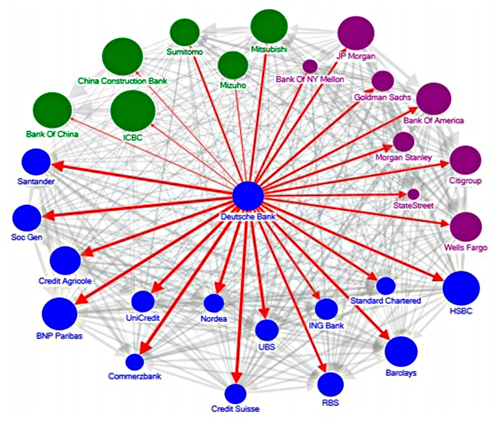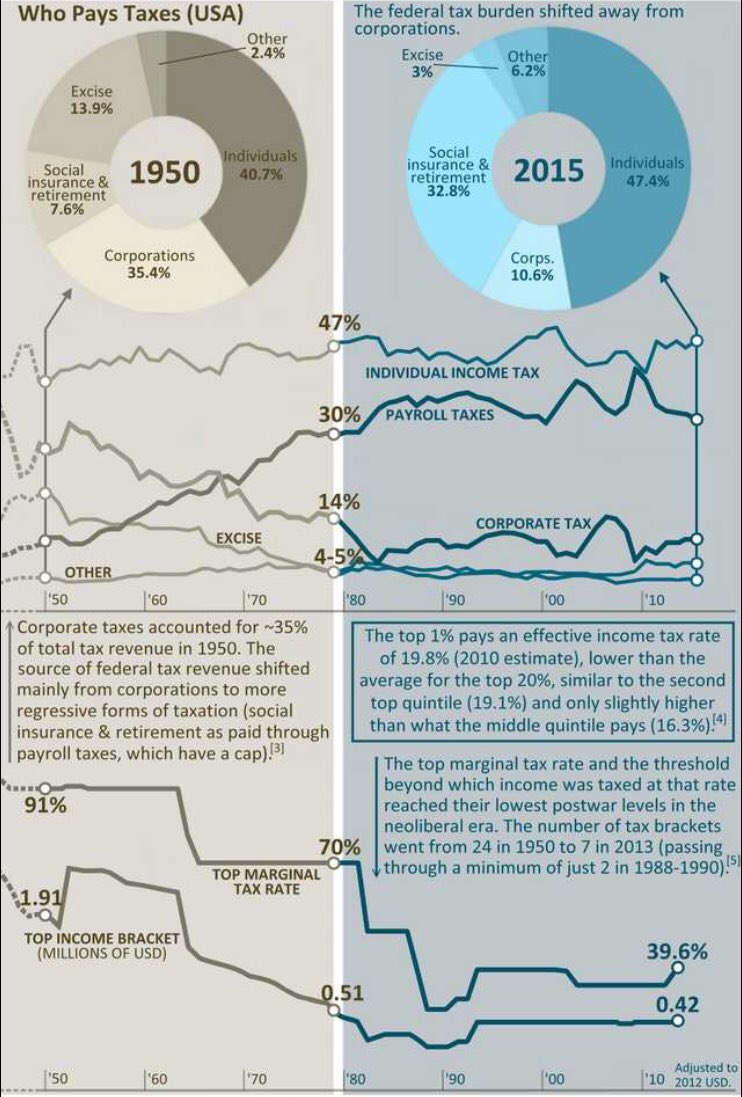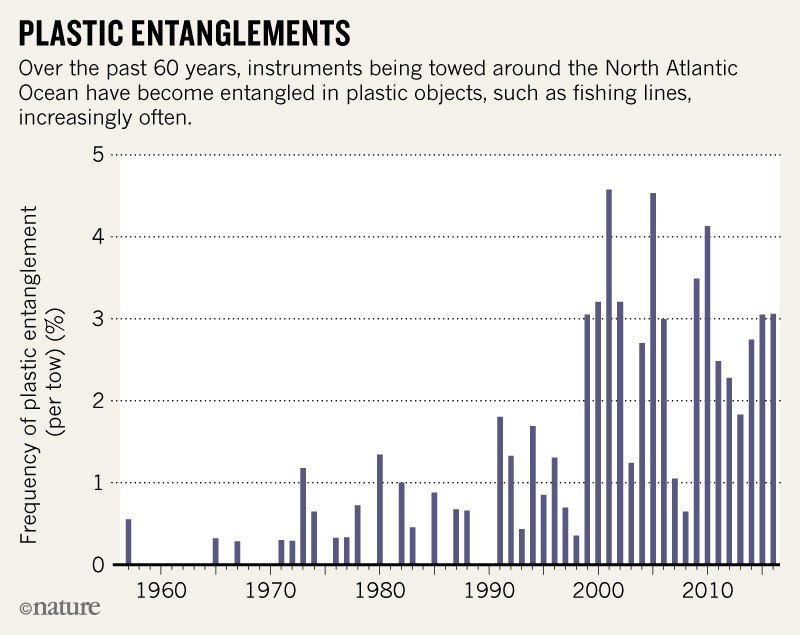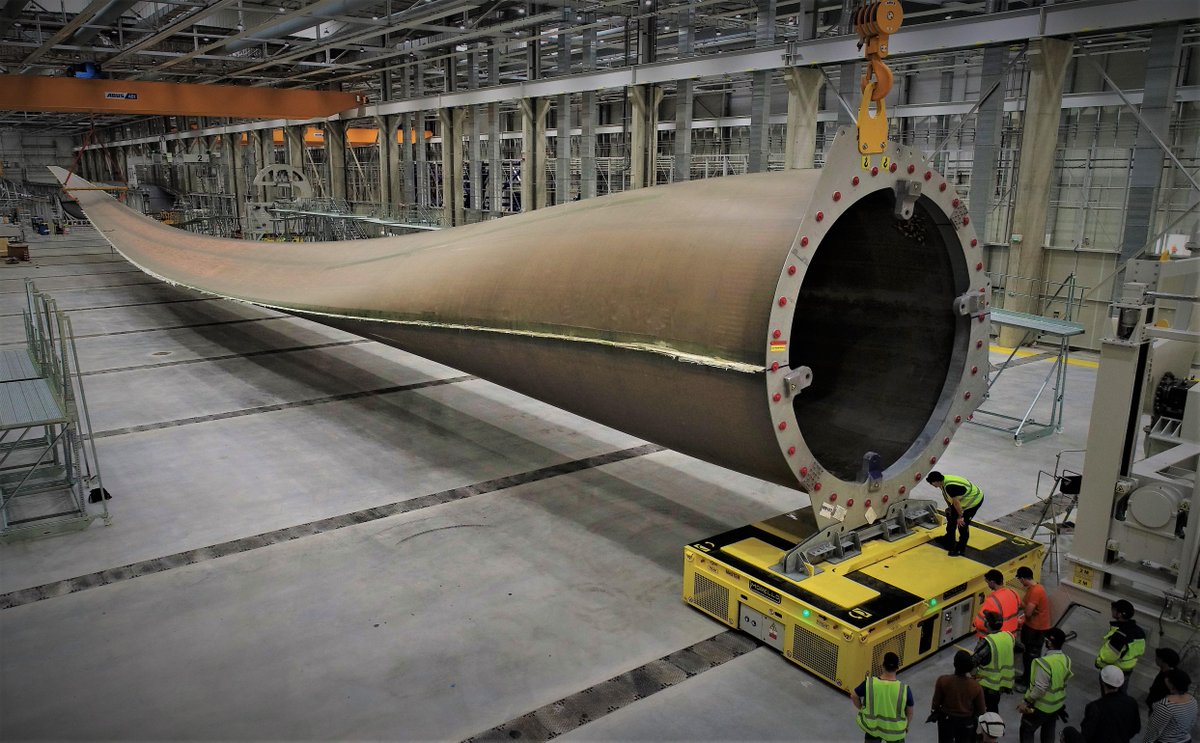by Tony Wikrent
Economics Action Group, North Carolina Democratic Party Progressive Caucus
I have been looking at the work of Cornell University law professor Robert Hockett, who is serving as an economics adviser to Representative Alexandria Occasio-Cortez. I have been delighted to find that Hockett has been working the same angle I have: applying the classical republicanism that informed the creation of USA, to today's issues of political economy. Hockett's contribution is the development of the concept of what he calls "the producers' republic":
....the United States actually has a distinguished tradition of what I am calling “productive republican” finance. It is a tradition pursuant to which productive assets were deliberately spread broadly among diligent citizens ready to better the lives of themselves, their families, and ultimately their communities through thoughtful, hard work.
Historically, the tradition is rooted in two complementary sources: first, an implicitly opportunity-egalitarian, “productive yeoman” colonial culture and subsequent national self-image, stemming in large measure from the Civic Republican and Classical Liberal ideological origins of the American republic; and second, an attendant suspicion of large aggregations of financial capital, stemming ultimately not only from the inconsistency of such aggregations with equal opportunity and productive yeomanry themselves, but also from many of the Founders’ and their forebears’ personal experiences, as agronomists, with exploitative absentee London banking concerns across theThis past January, Hockett was a participant in a small conference Money as a Democratic Medium, sponsored by Harvard University's Program on the Study of Capitalism, Institute for Global Law and Policy:
Atlantic.
Money, governance, and public welfare are intimately connected in the modern world. More particularly, the way political communities make money and allocate credit is an essential element of governance. It critically shapes economic processes – channeling liquidity, fueling productivity, and influencing distribution. At the same time, those decisions about money and credit define key political structures, locating in particular hands the authority to mobilize resources, determining access to funds, and delegating power and privileges to private actors and organizations.
Recognizing money and credit as public projects exposes issues of democratic purpose and possibility. In a novel focus, this conference makes those issues central. Scholars, policy makers, and students have often assumed that money and credit emerge from private exchange and entrepreneurial activity. Recent work, by contrast, emphasizes that modern currencies depend on collective orchestration. That approach resets the frame.One of the participants was Jeffrey Sklansky, professor of history at the University of Illinois at Chicago and author of Sovereign of the Market: The Money Question in Early America (University of Chicago Press, 2017). Sklansky gave a brief but excellent overview of the career of Charles Macune, the head of the Southern Farmers' Alliance from 1886 to December 1889 and editor of its periodical, the National Economist, until 1892. Macune developed the Sub-Treasury idea to break the stranglehold the big banks and grain trading firms had on finance and credit for agriculture. There is precious little information available on Macune, and Sklansky has earned my deep respect for what he is doing.
Hockett's presentation is also in this video, as is that of Joseph R. Blasi of the Rutgers School of Management and Labor Relations, "The Citizen's Share: Reducing Inequality in the 21st Century"
This is only one of about a dozen YouTube videos of the Money as a Democratic Medium conference.
In Having a Stake: Evidence and Implications for Broad-based Employee Stock Ownership and
Profit Sharing, Blasi writes about the federally mandated profit sharing the administration of George Washington imposed on the cod fishery to rebuild it, after the British had nearly destroyed it because it trained so many of the officers and sailors in the American navy.
....Jefferson, Washington, and the Congress chose to help the industry get back on its feet by what was essentially a tax cut (in lieu of tariffs paid for supplies coming from outside the U.S.) to the owners and workers of the cod fishery on the condition that the ship owners share the tax credits with all the workers.... they rejected outright subsidies to the wealthy owners who controlled the boats and warehouses on the basis that any government tax credits had to include workers. The law was explicit in its sharing criterion: owners had to share five-eighths of the credit with the crew, and additionally have a signed agreement with the captain and crew for broad-based profit sharing on the entire catch throughout the voyage. The tax credits were administered by the Treasury Department headed by Alexander Hamilton through the port Customs’ Houses. The arrangement helped rejuvenate the industry. Congress continued it for many decades. See The Citizen’s Share: Reducing Inequality in the 21st Century, Joseph R. Blasi, Richard B. Freeman, and Douglas L. Kruse. (New Haven: Yale University Press, 2013), 1-8. See also the Report on the American Fisheries by Secretary of State Jefferson.
Thomas Marois, Senior Lecturer in Development Studies at the University of London and recent guest on It’s Our Money with Ellen Brown, argues that until people regain control of money and credit, we will not be able to stop economic and ecological crises.
“There’s really no option. We can’t simply relegate the question of money and finance and credit … We can’t do anything until we have control of money. And to leave that to the private sector is a strategic mistake because then they control that agenda. They control credit. They control access to credit.”
Strategic Political Economy
The balanced-budget amendment is incredibly dumb, and inextricably linked to The Dumbest Idea in American History. This makes me crazy. Any Democratic politicians who attach themselves to any derivation of The Worst Idea In American Politics, especially in 2019, are not "moderate Democrats." They are conservative Democrats or, more accurately, radically conservative Democrats. Really, Bloomberg, knock this stuff off. Also, Blue Dogs? Knock this stuff off, too."Empire and Economics: The Long History of Debt Cancellation from Antiquity to Today
Panel discussion with Michael Hudson, Reverend Dr. Liz Theoharis, and New Testament expert Dr. Aliou Niang at the People’s Forum earlier this month.“The world’s largest hedge fund breaks down how the US workforce got screwed over the past 20 years”
“The biggest driving factor behind soaring profits, Bridgewater reports, is the decline in the share of profit that workers receive. The decline in unionization among US workers, and to a lesser extent the advance of technology and outsourcing of jobs, are driving worker wages down.”Trump’s Most Worrisome Legacy
Lamber Strether writes: "I think that “truth-telling, truth-discovering, and truth-verifying institutions” are much thinner on the ground than Stiglitz thinks they are, and have been steadily dwindling throughout the neoliberal era, because markets."
Predatory Finance
After a $354 Billion U.S. Bailout, Germany’s Deutsche Bank Still Has $49 Trillion in DerivativesPam Martens and Russ Martens, April 17, 2019 [Wall Street on Parade]
Deutsche Bank: Here’s What Maxine Waters Should Be Subpoenaing
Pam Martens and Russ Martens, April 16, 2019 [Wall Street on Parade]
According to today’s New York Times, Democrats now in charge of the House Intelligence and Financial Services Committees, have issued subpoenas to Deutsche Bank, JPMorgan Chase, Bank of America and Citigroup, related to the President’s finances and/or Russian money laundering.
We’d like to suggest that while that may well be a fruitful avenue of inquiry (see Russian Bank Chairman Met with Kushner, Citigroup and JPMorgan Chase), it does not rise to the level of national security risk posed by the derivative interconnectedness of those same banks. The President’s approximate $300 million in loans from Deutsche Bank and its ties to Russian money laundering, pales in comparison to trillions of dollars in interconnected derivative exposure of these same banks.
Systemic Risk Among Deutsche Bank and Global Systemically Important Banks (Source: IMF — “The blue, purple and green nodes denote European, US and Asian banks, respectively. The thickness of the arrows capture total linkages (both inward and outward), and the arrow captures the direction of net spillover. The size of the nodes
Enemy Actions
Something's not right when the most profitable companies can avoid paying their share.
Trump Tax Code: These Companies Made Billions, Paid No Taxes
“The illicit exploitation of natural/environmental resources, such as gold, minerals, diamonds, timber, oil, charcoal and wildlife, is the single-largest overall category of threat finance to conflicts today, estimated at 38% share of illicit flows to armed groups in conflict. When incomes from these natural resources are combined with their illicit taxation and extortion (26%) by the same non-state armed groups, the figure becomes as high as 64%.”Stealth pay fattening CEOs' wallets: How executives reap dividends on shares they don’t own
[Crain's New York Business, via The Big Picture 4-19-19]
The Student-Debt Crisis Hits Hardest at Historically Black Colleges
The Depths of Despair Among US Adults Entering Midlife
At the close of 2016, the National Center for Health Statistics released a report on US mortality in the previous year. For the first time since 1993, life expectancy at birth declined, and death rates across 8 of the 10 leading causes increased.1 This trend persisted, with reports for 2016 and 2017 demonstrating continuing declines.2,3 These troubling reports suggested that progress against the leading causes of death had stalled, or even reversed. Underlying these population statistics, research demonstrated that the increase in mortality was concentrated among low-educated, middle-aged non-Hispanic Whites, who, despite longstanding declines in mortality, have experienced rising mortality since the late 1990s.4Personally, what I find particularly stress and rage inducing are the "gotcha" fees, penalties, short-changing, price increases, etc., facilitated by the software of our "information age." Why are these things always subtracting from my financial position, and never adding? It can only be by design....
Although the pronounced increase in death rates among this demographic group has been established, the drivers of this increase are under debate.6,7 Initial research identified suicides, drug overdoses, and alcohol-related liver disease as the causes of death responsible for rising midlife mortality8 and labeled these causes “deaths of despair.”7 Because of the concentration of these deaths among low-educated Whites and in rural areas where economic stagnation has been widely documented, scholars attributed the rise in midlife mortality to a general context of hopelessness and self-destructive behaviors reflecting despair.9,10
The factors underlying these patterns remain unknown. However, current explanations point to labor market changes driven by globalization and technological change, leading to deteriorating job opportunities, wage stagnation, and declining rates of upward mobility for low-educated individuals.7 These economic factors undermined social support by eroding traditional family structures and religious participation, resulting in despair.
Climate and environmental crises
Decrying ‘Toxic Alliance’ of Macron and Polluters, Climate Campaigners Stage One of France’s Largest Ever Acts of Civil Disobedience
- The apparel and footwear industries together account for more than 8 percent of global climate impact, greater than all international airline flights and maritime shipping trips combined.
- The challenge to reduce carbon emissions offers the fashion industry an opportunity for its players do what they do best -- be creative.
- Eco-friendly fashion pioneers from Stella McCartney to Rent the Runway to the RealReal are creating new reuse and resale models of doing business.
“Yet as bag bans spread around the globe, their effectiveness—despite Wakibia’s sunny appraisal of Kenya’s effort—remains an unanswered question. Bag bans have spawned bans of other plastic products, including plates, cups, cutlery, straws and bottles, as part of an expanding effort to reduce single-use plastics, which make up about 40 percent of the plastics manufactured worldwide. But whether bans can significantly reduce plastic waste, which leaks into the oceans at an average rate of 8 million tons a year, remains to be seen‒especially when considering that plastic production is forecast to double by 2040, and may account for 20 percent of the world’s oil production by 2050.”Planet’s ocean-plastics problem detailed in 60-year data set
[Nature, via Naked Capitalism 4-19-19]
Data recorded by instruments known as continuous plankton recorders (CPRs) — which ships have collectively towed millions of kilometres across the Atlantic Ocean — show that the trackers have become entangled in large plastic objects, such as bags and fishing lines, roughly three times more often since 2000 than in preceding decades.... CPRs are torpedo-like devices that have been used since 1931 to survey plankton populations, by filtering the organisms from the water using bands of silk. Today, volunteer ships such as ferries and container ships tow a fleet of CPRs around the world’s oceans.... Each time a ship tows a CPR, the crew fills in a log book and notes any problems with the device. So Ostle and her colleagues looked through all tow logs from the North Atlantic between 1957 and 2016, to determine whether plastic entanglements have become more common.Elizabeth Warren [Medium, via Naked Capitalism 4-17-19]
“Any serious effort to address climate change must include public lands — fossil fuel extraction in these areas is responsible for nearly a quarter of all U.S. greenhouse gas emissions. The Trump administration, with its casual denial of science and apparent amnesia about massive crises like the BP oil spill, has also proposed opening nearly the entire U.S. coastline to seismic testing and offshore drilling…. on my first day as president, I will sign an executive order that says no more drilling — a total moratorium on all new fossil fuel leases, including for drilling offshore and on public lands. I’d also reinstate the methane pollution rule to limit existing oil and gas projects from releasing harmful gases that poison our air, and reinstitute the clean water rule to protect our lakes, rivers, and streams, and the drinking water they provide… As President, I will set a goal of providing 10% of our overall electricity generation from renewable sources offshore or on public lands. That’s nearly ten times what we are currently generating.”A long history of climate science
The Coming Desert: Kropotkin, Mars and the Pulse of Asia
Mike Davis [New Left Review, January-February 2016]
Anthropogenic climate change is usually portrayed as a recent discovery, with a genealogy that extends no further backwards than Charles Keeling sampling atmospheric gases from his station near the summit of Mauna Loa in the 1960s, or, at the very most, Svante Arrhenius’s legendary 1896 paper on carbon emissions and the planetary greenhouse.... Oddly, it required the ‘discovery’ of a supposed dying civilization on Mars to finally ignite interest in the idea, first proposed by the anarchist geographer Kropotkin in the late 1870s, that the 14,000 years since the Glacial Maximum constituted an epoch of on-going and catastrophic desiccation of the continental interiors.
No patient left behind
As Single-Payer Gains Traction, Industry Launches Attack AdsWhat It Was Like to Have a Baby in Sweden
We wouldn’t have our daughter right now if we still lived in America. My wife and I literally wouldn’t have been able to afford the cost of a regular birth, let alone the procedures she needed to undergo when we had trouble conceiving.
My wife got pregnant with help from in-vitro fertilization. In the U.S., one cycle would’ve cost me, oh, $12,000? And that’s $12,000 we definitely didn’t have. Plus that’s only for one cycle. Most people need at least two or three for it to take. So that costs $36,000? That would’ve crippled us....
Now, I don’t remember all the costs of the hospital stay. But it was far, far, cheaper than anything we were anticipating. I checked my bank statement and saw that our delivery stay, which included hotel room and food and all that, was 1,200 kr. That’s about $130. All I cared about was that my wife and daughter were both happy and healthy. They were. When I realized that the average birth in America costs nearly $10,000, I was pretty happy with what we paid.
Creating new economic potential - science and technology
Scientists Unveil World’s First Human Heart 3D-Printed From Patients’ Own CellsA 3D-printed heart with blood vessels has been made using human tissue
For the first time, astronomers see the birth of a neutron star binary system
[syfy.com, via The Big Picture 4-18-19]
LM Wind working on 107-meter turbine blade
LM Wind Power has developed a mold for a 107-meter turbine blade that the company says has the potential to be the largest blade in the world. LM is preparing to test the unit, which would be used in General Electric's Haliade-X 12-megawatt offshore wind turbine.
Wind companies spent $30.05 billion to add wind farms with a combined capacity of 16.7 gigawatts in Europe last year, according to WindEurope. The spending level is on par with previous years yet resulted in greater capacity additions due to declining costs.Renewables increasingly competitive as costs fall by double digits
Global offshore wind costs are rapidly declining, having fallen 24% over the previous 12 months and 56% since 2010, says Bloomberg NEF. The cost of onshore wind has declined 49% since 2010, according to the report, which also says prices are falling faster than expected due to new technologies, larger machines and auction-style procurement mechanisms.Brookings study shows Green New Deal would mean tens of thousands of new jobs:
But the 43-page analysis released Thursday notes that one big issue will be training people for these jobs. The research team, led by Mark Muro and Joseph Kane, said: "Occupations related to the clean energy transition offer a potent antidote to the inclusion challenges of the modern American economy. These are the types of professional opportunities the macroeconomy needs in a time of significant industrial transformation." Even though many of these jobs won’t require college degrees, they will come with middle- to high-income wages and be distributed widely throughout the economy. And, said the researchers, these jobs would provide an opportunity to obliterate institutional biases that have traditionally kept women and people of color out the workforce.
Economics in the real world
From 2018, still germane: “The arrival of ridesharing is associated with an increase of 2-3% in the number of motor vehicle fatalities and fatal accidents. This increase is not only for vehicle occupants, but also for pedestrians. We propose a simple conceptual model to explain the effects of ridesharing’s introduction on accident rates. Consistent with the notion that ridesharing increases congestion and road utilization, we find that the introduction of ridesharing is associated with an increase in arterial vehicle miles traveled, excess gas consumption, and annual hours of delay in traffic. On the extensive margin, ridesharing arrival is also associated with an increase in new car registrations. These effects are higher in cities with higher ex-ante use of public transportation and carpools, consistent with a substitution effect, and in larger cities and cities with high ex-ante vehicle ownership.”“Wrenching video from Pine Island dairy farmer highlights desperation on the farm”
[Star-Tribune, via Naked Capitalism 4-16-19]
“Dairy farming is collapsing a way of life around the country. The median income at a dairy farm in Minnesota dropped by nearly two-thirds last year, from $43,000 to less than $15,000. And one out of 10 Minnesota dairy farmers ceased operations. Smaller operations, such as the Bergs’, struggle to survive with milk prices hovering around break-even for years. Large-scale operations have emerged with lower costs and high output…. Near the end [of the Video], [Mark Berg] described feeling irritated by a call his mother, Penny Berg, received from Beth Ford, chief executive of Land O’Lakes, the agricultural cooperative based in Arden Hills that is one of the nation’s largest producers of dairy products. Ford reached out after receiving a letter from Penny Berg outlining the family’s struggles. Mark Berg gave Ford credit for reading the letter and then calling his mom, but he was upset that she offered to help his mom find other work. ‘Find another job? My mom wakes up at 5 in the morning every single [expletive] morning and works until 10 o’clock at night,’ he said.”Very telling that no one points out that the Dairy Product Price Support Program (DPPSP) and the Dairy Export Incentive Program (DEIP) were terminated in the 2014 Farm Bill. As critics of the Republican move to "free" markets warned, we are now losing dairy farmers at an accelerating rate.
African swine fever, first spotted in Africa in the 1900s, kills most infected pigs within 10 days, although it isn’t known to harm humans. China has already culled more than a million pigs after 122 outbreaks in 30 provinces. The disease shows no signs of abating.
Pork production in China probably will decline about 30 percent this year, a drop roughly the size of Europe’s entire annual supply, according to Rabobank, a top lender to the agriculture industry. The number of breeding sows in China already slumped 21 percent in March from a year earlier, according to a report by the Ministry of Agriculture and Rural Affairs published Friday.
“These 5 charts show inequality is bad for your health — even if you are rich” (charts) [MarketWatch, via Naked Capitalism 4-17-19]
From February, still germane: “‘It’s not just the poor who are affected by inequality, we’re all affected by inequality. Our colleagues at the Harvard School of Public Health describe inequality as a social pollutant because it’s like air pollution — you can’t escape it, it’s in the air, we all feel it,’ [British epidemiologists Kate Pickett] said during a recent book talk at the Economic Policy Institute in Washington. [Pickett and British epidemiologist Richard Wilkinson] have written a new book called the ‘Inner Level,’ which focuses on wide-ranging psychological detriments from the experience of stark inequality, including feelings of inadequacy, depression, envy and other negative emotions. … ‘What the research shows — not just ours but that of hundreds of researchers around the world — is that inequality brings out features of our evolved psychology, to do with dominance and subordination, superiority and inferiority, and that affects how we treat one another and ourselves, it increases status competition and anxiety, anxieties about our self worth, worries about how we are seen and judged,’ [Pickett] said.”Boeing’s 737 MAX 8 Disaster Could Turn China Into Aviation Superpower
Disrupting mainstream economics - Modern Monetary Theory
.... I think it’s likely that MMT will help give intellectual respectability to the notion that Democrats don’t have to pay for everything they want to do, be that a Green New Deal or Medicare-for-all or a big middle-class tax cut.
To be sure, it is not the only force pushing in that direction. Perhaps the most important influence is the behavior of the Republican Party. Ronald Reagan exploded the budget deficit by enacting massive tax cuts and defense spending increases, which his cuts to welfare spending couldn’t hope to match. George W. Bush blew up the first balanced budget in a generation with two rounds of tax cuts and two immensely expensive foreign wars — as well as a massive financial crisis at the end of his tenure.... So even if you want to generate balanced budgets in the future, Democratic deficit spending might be a way to get Republicans more on board with that going forward. And MMT just strengthens Democrats’ bargaining position in this regard, as it lets them send a credible signal that they don’t even think it’s a good idea to pay for everything.\
What’s more, many mainstream economists are starting to conclude, given the persistently low interest rates the US and other countries have experienced this decade, that deficits may not be particularly costly, even within a mainstream framework.
“The current US situation in which safe interest rates are expected to remain below growth rates for a long time, is more the historical norm than the exception,” Olivier Blanchard, the former IMF chief economist, said in his presidential lecture at the American Economics Association this year. “Put bluntly, public debt may have no fiscal cost.”
The speech sent shock waves through the economic profession.
Information Age Dystopia
Bad Bots Now Make Up 20 Percent of Web TrafficDisrupting mainstream politics
The former president says he’s worried about ‘purity’ tests in the Democratic party. What he’s really worried about is his surrogates losing control of the party
....By comparison, Bernie played softball in 2016. But he certainly gave voice to grassroots anger. People are fed up with the status quo, and they’re starting to demand more of their politicians. Incumbents used to moving to an imaginary center are running up against the fact that their “center” is an illusion. When most Americans support Medicare for All and a jobs guarantee, when they want an end to overseas wars, welcome unions, and even are starting to get comfortable with the idea of socialism, is it really “centrist” to stubbornly oppose all these things? ....Obama and the centrist Democrats he backs are something like the old “Rockefeller Republicans” of the 70s and early 80s. They didn’t realize how out of step with the times they were until it was too late.
“The matter of What To Do About Bernie and the larger imperative of party unity has, for example, hovered over a series of previously undisclosed Democratic dinners in New York and Washington organized by the longtime party financier Bernard Schwartz. The gatherings have included scores from the moderate or center-left wing of the party, including Speaker Nancy Pelosi; Senator Chuck Schumer, the minority leader; former Gov. Terry McAuliffe of Virginia; Mayor Pete Buttigieg of South Bend, Ind., himself a presidential candidate; and the president of the Center for American Progress, Neera Tanden.”
“Bernie Sanders and the Science of Smears”
"I would counsel anyone who thinks Russia is responsible for the rise of Sanders or people like Gabbard or Alexandria Ocasio-Cortez should go out and interview voters around the country, especially in remote areas. The anger toward the political establishment that drives support for such politicians began to be visible over a decade ago, long before Sanders or Gabbard were factors in any kind in national politics. Those voters aren’t selfish, or hypocrites, or Kremlin favorites, and they’re not going anywhere. What a lot of DC-based reporters and analysts don’t grasp is that if you remove Bernie Sanders from the scene, there will still be millions of people out there mad about income inequality. Remove Gabbard, and discontent about the human and financial costs of our military commitments will still be rampant. Removing Warren won’t cancel out anger about Wall Street corruption. Covering personalities instead of political movements only delays things for a while.”
“The Impotence of “Stop Sanders” Democrats”
“Sanders’s most vocal opponents in the party are an assemblage of establishmentarians and familiar Beltway hands, none of whom speak for a political constituency of any size or significance. Moreover, far from hurting Sanders, this impotent assault is self-defeating, fueling the narrative that party gatekeepers want, at all costs, to keep a political revolution from taking over the Democratic Party… Sanders has transformed attacks from the liberal policy advocacy organization Center for American Progress—run by Clinton loyalist Neera Tanden—and Brock into a fundraising bonanza. Fights with the Democratic establishment only bolster Sanders’s credibility with his base—along with the sense that the party is out to kneecap his campaign once again.”"Democrats once represented the working class. Not any more:
"Bill Clinton and Barack Obama helped shift power away from the people towards corporations. It was this that created an opening for Donald Trump."“Former AIPAC President Endorses Pete Buttigieg”
The Dark Side
Secrecy, Self-Dealing, and Greed at the N.R.A.[The New Yorker, via Naked Capitalism 4-19-19]
Personally, I have good reason to believe that if the proper authorities investigated the use of the National Rifle Association's fleet of private aircraft based in northern Virginia, they would find gross misuse by N.R.A. executives.
According to interviews and to documents that I obtained—federal tax forms, charity records, contracts, corporate filings, and internal communications—a small group of N.R.A. executives, contractors, and venders has extracted hundreds of millions of dollars from the nonprofit’s budget, through gratuitous payments, sweetheart deals, and opaque financial arrangements. Memos created by a senior N.R.A. employee describe a workplace distinguished by secrecy, self-dealing, and greed, whose leaders have encouraged disastrous business ventures and questionable partnerships, and have marginalized those who object....
Marc Owens, who served for ten years as the head of the Internal Revenue Service division that oversees tax-exempt enterprises, recently reviewed these records. “The litany of red flags is just extraordinary,” he said. “The materials reflect one of the broadest arrays of likely transgressions that I’ve ever seen. There is a tremendous range of what appears to be the misuse of assets for the benefit of certain venders and people in control.” Owens added, “Those facts, if confirmed, could lead to the revocation of the N.R.A.’s tax-exempt status”—without which the organization could likely not survive.
This is all you need to know about the editorial independence of ThinkProgress. Podesta and Tanden get Judd Legum to change this headline about Clinton's dishonest attacks on Sanders's Medicare for All proposal wikileaks.org/podesta-emails…














No comments:
Post a Comment